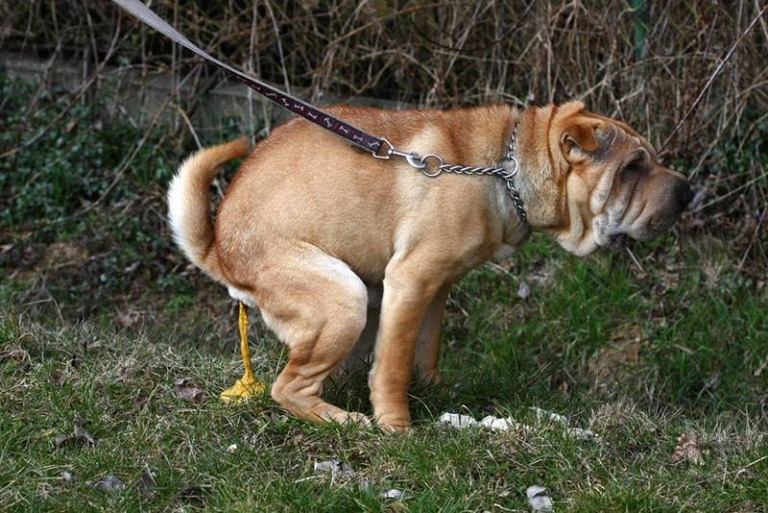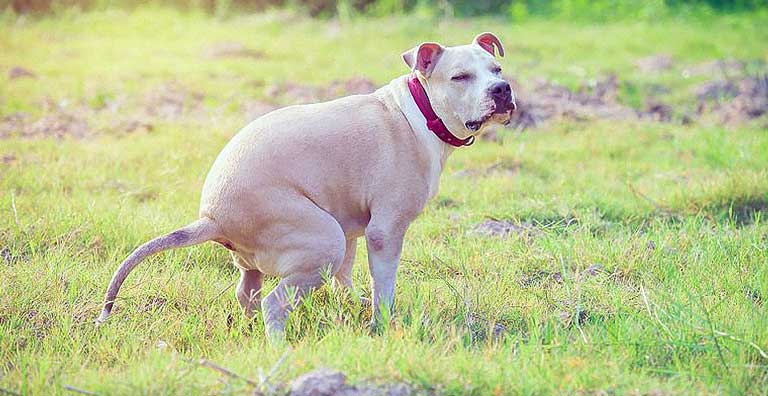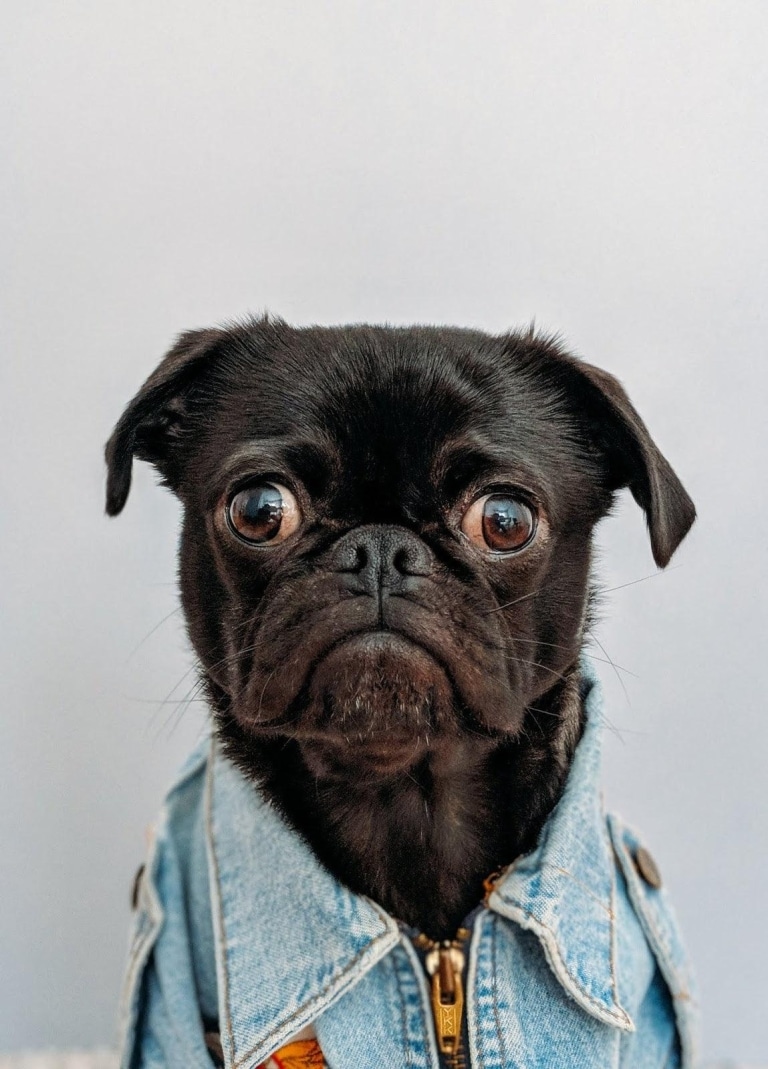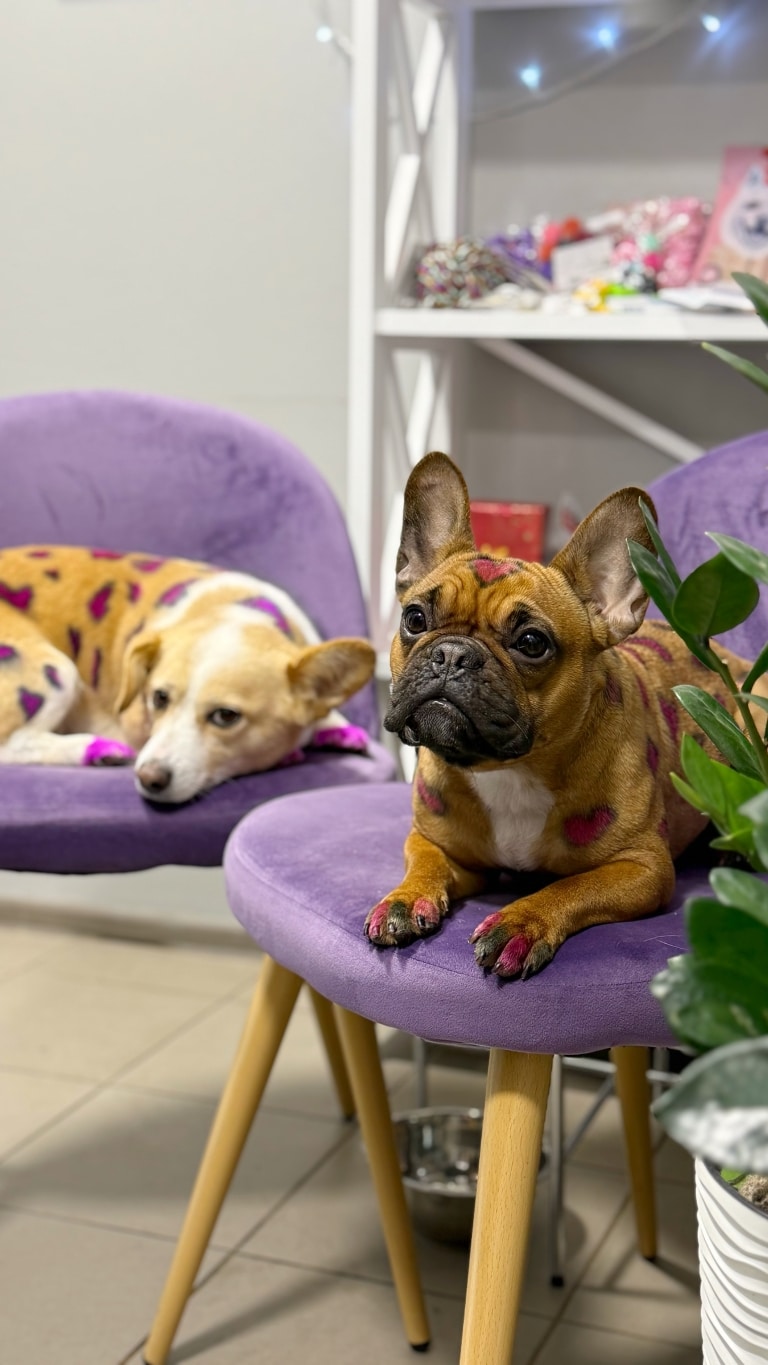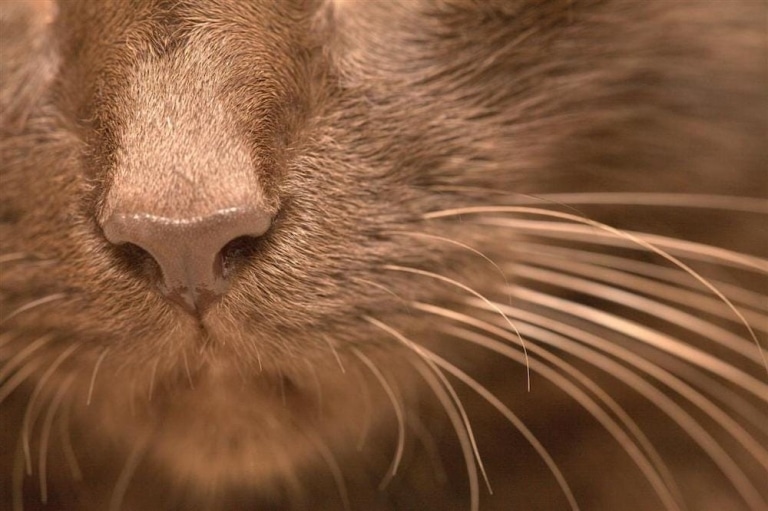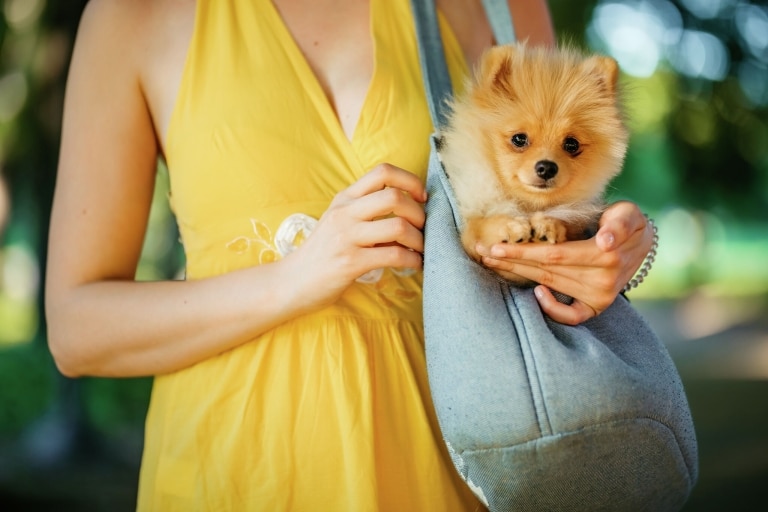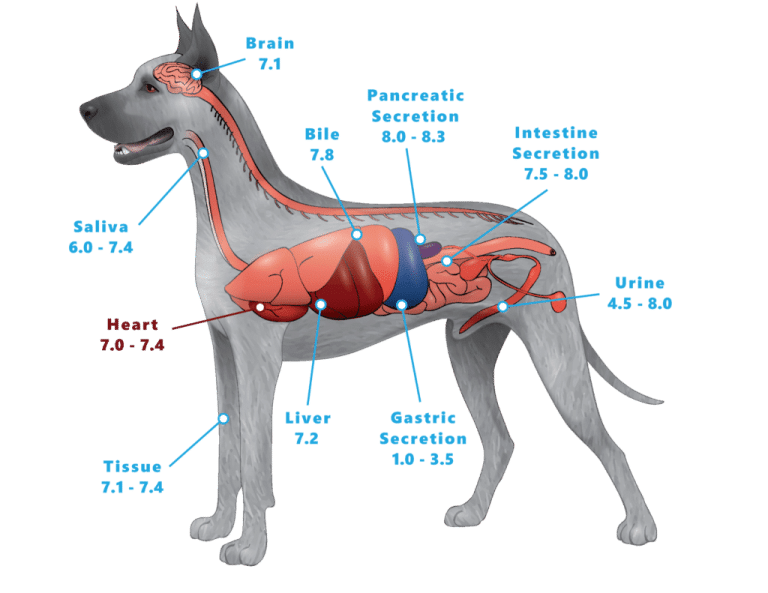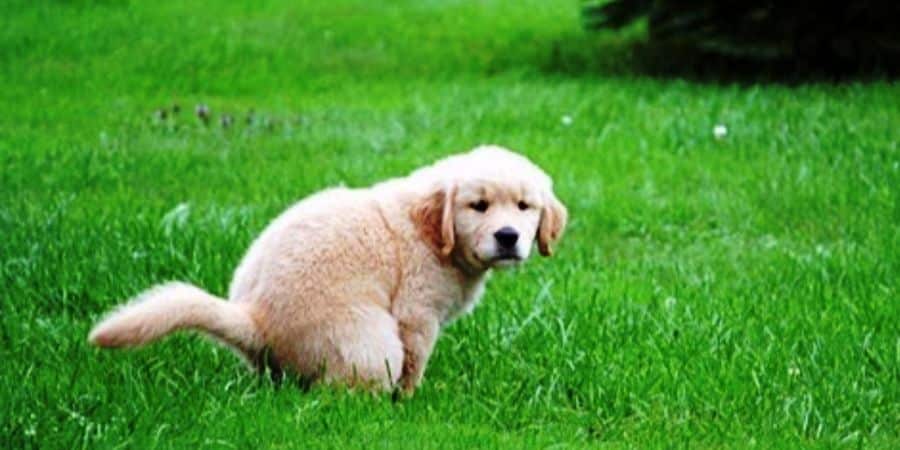
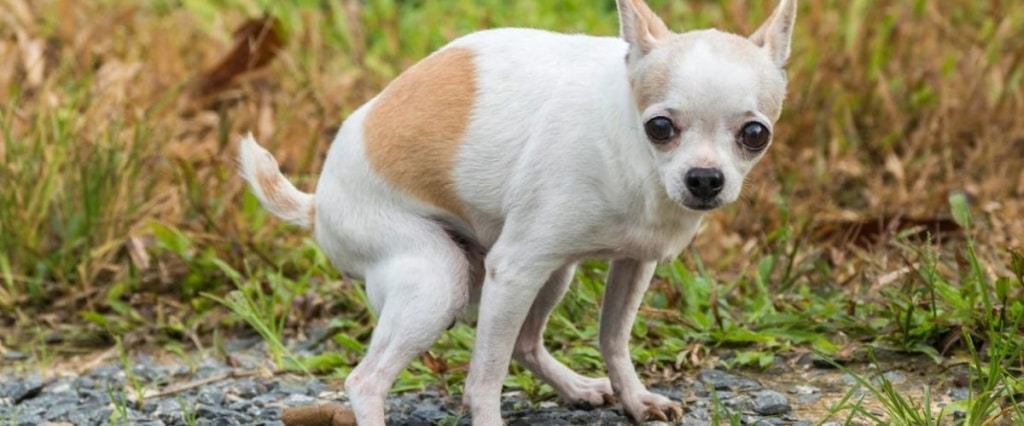
What is diarrhea in a dog?
Your dog, always active, playful and cheerful, suddenly becomes not the same as usual. He runs outside more often, and every time his stool looks liquid or even watery. Diarrhea is one of the most common gastrointestinal disorders in dogs. Although sometimes diarrhea in a dog can be just a short-term discomfort that passes quickly, there are times when it is a signal of a serious problem.
If your dog becomes lethargic, apathetic, loses interest in food, looks exhausted, or avoids your touching his belly, this is already a sign that his condition is deteriorating. And if there is blood or mucus in the stool, you can no longer delay, you must urgently consult a veterinarian. Remember, a quick reaction is the key to your pet’s health!
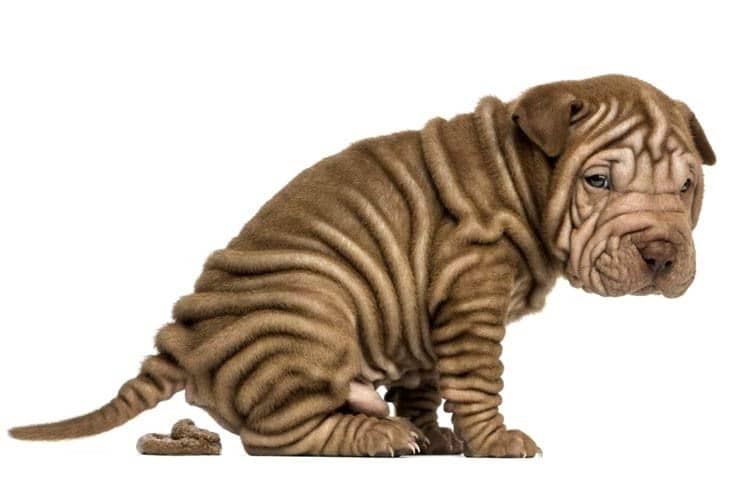
Causes of diarrhea in dogs
So, your dog has diarrhea. What could have caused it? It turns out that there are many, and here are a few of the most common:
Change of diet. You decided to pamper your pet with new food or something delicious, but your dog’s body is not so quick to “friend” new ingredients. Often, a sudden change in feed can be a real challenge for the animal’s stomach, especially if the products are difficult to digest.
Overeating or eating unsuitable food. Dogs, like true explorers of the world, love to sniff and, unfortunately, eat things they shouldn’t. Spoiled food, garbage, or even inedible things can all cause a storm in their gastrointestinal tract.
Food allergy or intolerance. Some dogs may be sensitive to certain ingredients, such as chicken, beef, dairy, or grains, and this can cause stomach problems, including diarrhea.
Vermin. These little unwanted guests are often the cause of disorders in dogs. This is especially true for puppies or dogs that drink water from questionable sources.
Infections. Bacteria and viruses can lurk anywhere in your dog, causing not only diarrhea but also serious symptoms such as vomiting and fever.
Inflammatory bowel diseases. Some dogs may suffer from chronic inflammatory processes in the intestines. Here, diarrhea becomes a constant or periodic companion of life, and the reason for this is the body’s abnormal reactions to food or bacteria.
Toxins and poisoning. If your dog comes in contact with chemicals, poisonous plants, or even worse, human medicine, it can lead to severe diarrhea and poisoning symptoms.
Stress and anxiety. Moving home, new animals, loud noises or visits to the vet can all cause stress in your pet. And when the nerves are not in order, the body reacts in its own way, including diarrhea.
Medicines. Antibiotics can change the balance of intestinal microflora, and some anti-inflammatory drugs irritate the gastrointestinal tract. This is another reason to be careful with medication.
Chronic diseases. Dogs that have chronic problems with organs such as the pancreas, liver or kidneys may regularly suffer from diarrhea due to digestive disorders.
Physical reasons. Obstructions in the gastrointestinal tract, such as tumors, intussusception (twisting of the bowel), or other physical obstructions, can cause diarrhea because the bowel cannot function properly.
If the diarrhea lasts more than 24-48 hours, is accompanied by other symptoms (vomiting, blood in the stool, lethargy) or the dog is severely dehydrated, it is necessary to consult a veterinarian to determine the exact cause and prescribe the appropriate treatment. A specialist will conduct the necessary tests, such as a blood test, ultrasound or even an intestinal biopsy, to find the cause and save your four-legged friend.
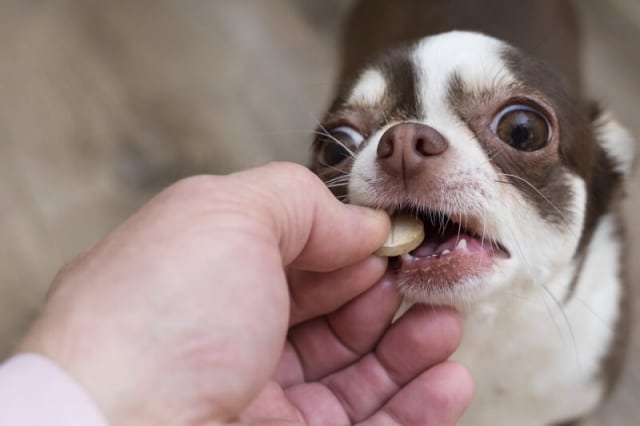
Help at home (food, care)
When your pooch suddenly starts suffering from diarrhea, it’s time to act fast and smart. What can be done to help him avoid complications and return to normal faster? Here are some simple but important tips.
Banting. The first step is to give your pet’s stomach a little rest. Usually, it is recommended to withhold food for 12-24 hours to give the gastrointestinal tract time to settle down. But be careful with puppies. They cannot starve for so long, a maximum of 12 hours, because they need energy for growth.
Providing hydration. One of the biggest dangers of diarrhea is dehydration. Your pet may look lethargic, the skin will become flabby, and the gums will be dry. To avoid this, make sure the dog has access to clean water. If he does not want to drink, offer him unsalted chicken broth or a special electrolyte solution for animals.
Light diet after fasting. When the fasting period is over, do not immediately rush to feed the dog again with its usual food. The return to the diet should be careful. Something light first, like skinless, spiced boiled chicken and bland white rice. There are also special foods for dogs with sensitive stomachs that help restore digestion.
Gradual return to the usual diet. Do not rush to return the dog to its usual diet. This should be done gradually, within 3-5 days, mixing light food with usual feed. This approach will allow the stomach to gradually get used to the loads and avoid repeated diarrhea.
Addition of probiotics. To help your gut heal faster, add probiotics to your diet. If your dog is lactose intolerant, a little low-fat yogurt or kefir can be a great source of good bacteria.
Observation of the condition of the dog. Keep an eye on your pet’s condition! If the stool begins to normalize, this is a good sign. But if the diarrhea lasts longer than 48 hours or you notice blood in the stool, contact your veterinarian immediately.
Appeal to the groomer
Diarrhea in dogs often causes additional difficulties in caring for the hygiene and cleanliness of the animal. When a dog suffers from diarrhea, the fur around the anal area, tail, and hind legs gets dirty quickly. This can lead to an unpleasant smell, skin irritation, and also cause discomfort in the animal. Dirty fur becomes a real challenge for owners because it is difficult to clean, especially if the dog has thick or long fur.
That is why, in such cases, it is especially important to maintain cleanliness and hygiene with the help of regular grooming procedures. Hygienic haircut is a great solution that will help make animal care much easier. This procedure involves trimming the fur around sensitive areas, including the anal area, tail, and inner thighs. This avoids the accumulation of dirt and bacteria, reduces the risk of skin irritation and inflammation, and also makes the animal more comfortable.
Moreover, a hygienic haircut also facilitates the process of daily dog care and allows for faster and easier cleaning in cases where problems with the gastrointestinal tract occur. Regular professional grooming will help maintain the overall cleanliness of the animal, which is an important factor for its health and well-being.
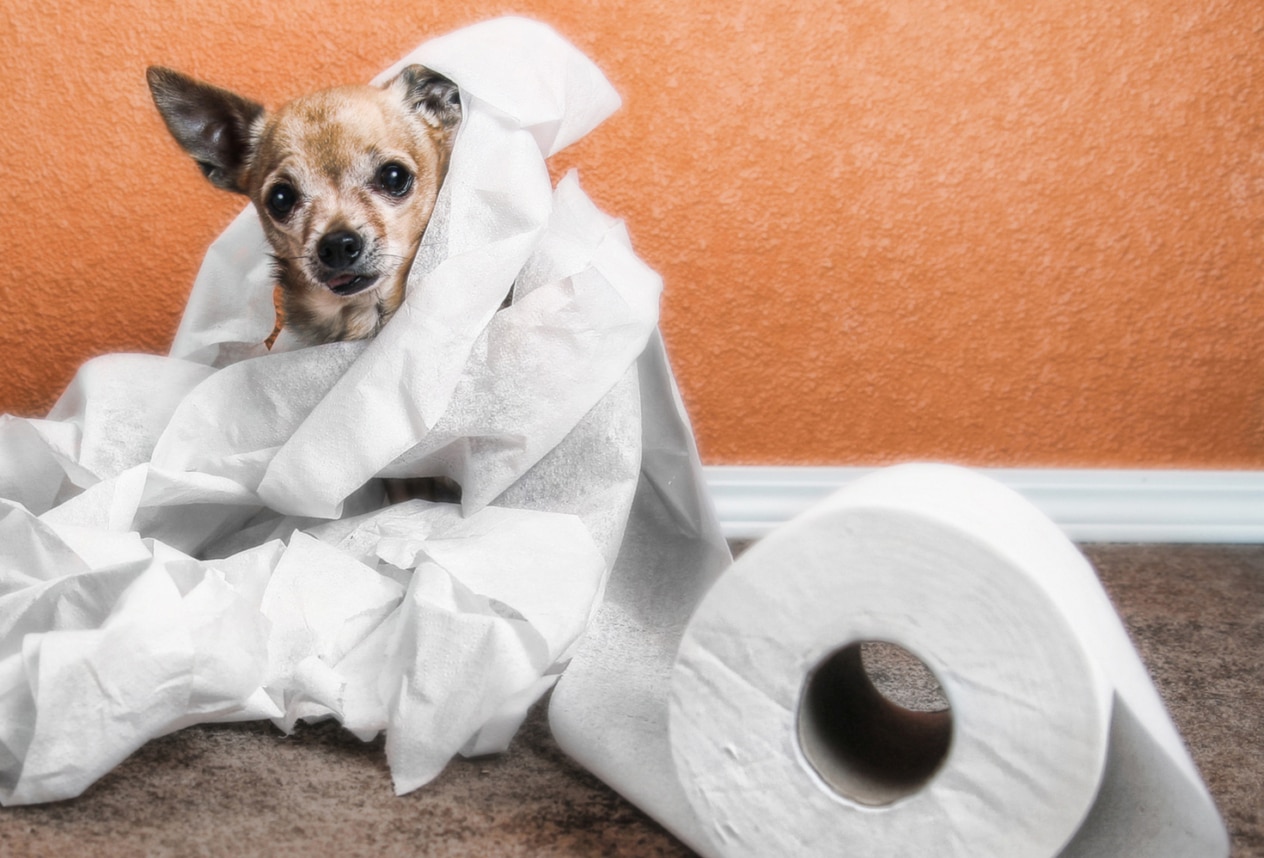
Prevention of diarrhea
How to protect your dog from unpleasant diarrhea? It turns out that there are some simple but effective measures that will help you avoid this disorder.
Balanced and stable nutrition. Everything starts with the right diet menu. Choose a high-quality food for your dog that is suitable for its age, breed and health. Low-quality feed can contain various harmful additives that can cause stomach upset. Nutrition is the basis of health!
Avoiding sudden changes in diet. If there is a sudden need to change the feed, do not do it in a hurry. Introduce the new feed gradually, within 7-10 days, mixing it with the usual one.
Regularity of meals. Feed your pet on schedule, without overeating. Remember that eating too much can cause an upset stomach, so stick to portions and feed him on time.
Clean water. Your dog needs fresh and clean water 24/7. Contaminated water can be a source of infections that can quickly lead to diarrhea.
Prevention of eating harmful things. Be alert! Make sure your dog doesn’t eat garbage, leftover food from the street or even toxic substances – this is a direct path to indigestion.
Regular deworming. Parasites are insidious enemies that often cause diarrhea. Do not forget to carry out regular deworming according to the recommendations of the veterinarian and monitor the hygiene of your dog, especially after walks.
Vaccination. Regular vaccination will protect the dog from infectious diseases that can cause severe diarrhea. Vaccinate your dog on the schedule recommended by your veterinarian to minimize the risk of serious infections.
Avoid stress. Just like humans, dogs also experience stress, which can negatively affect their digestion. Create a calm environment for your pet, especially during feeding. Avoid sudden changes in his life, such as new pets or moving, without proper adaptation.
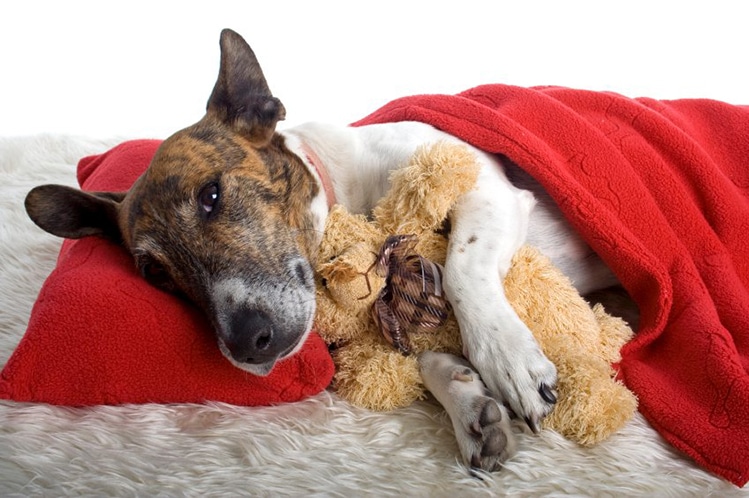

So, diarrhea in dogs is a common nuisance faced by every dog owner. It can occur for a variety of reasons, but the good news is that you can help your pet recover even at home! Proper care, a little attention, and your dog will quickly return to normal life.

